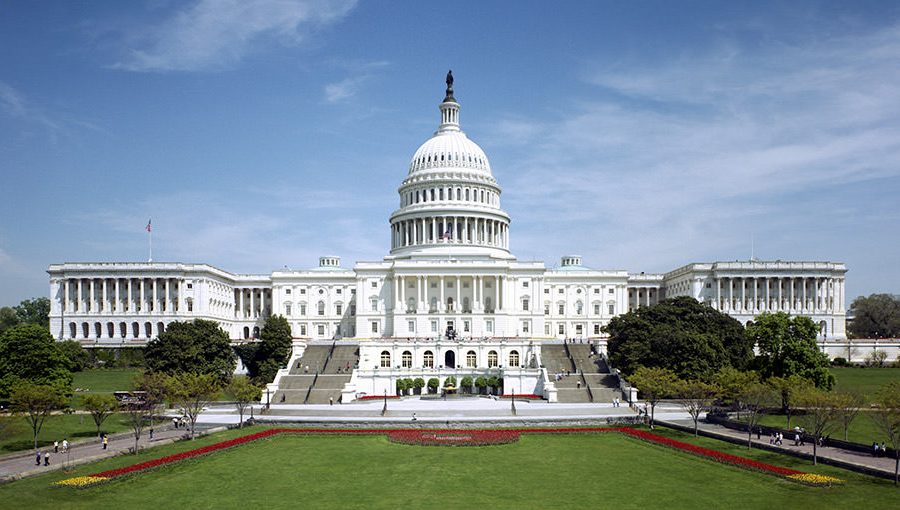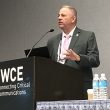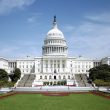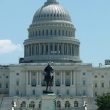House subcommittee proposes NG911 funding of up to $10 billion
A House subcommittee this week recommended approval of a bipartisan amendment that would provide as much as $10 billion to upgrade 911 centers nationwide to next-generation 911 (NG911) technology as part of legislation that would have the FCC auction at least 200 MHz of spectrum in the 3.1-3.45 GHz band.
Members of the House Subcommittee on Communications and Technology voted 29-0 in favor of the amended H.R. 7624, the “Spectrum Innovation Act. The bill now can be considered by the full House Energy & Commerce Committee. Approval from both the House and Senate would be needed for the legislation to be submitted to President Joe Biden for enactment.
Rep. Frank Pallone (D-N.J.)—chairman of the House Energy & Commerce Committee—expressed his support for the amended language during the subcommittee’s markup hearing.
“I am pleased that we have reached agreement to fund important public programs with the proceeds from the auction required in the Spectrum Innovation Act,” Pallone said. “Next-generation 911 will save lives by giving first responders the information they need to respond to dangerous situations. We do have to fund this program. so that all communities have access to these advanced networks.
“We will also fully fund the FCC’s rip-and-replace program to ensure that our communications networks are not vulnerable.”
Under the amendment in the nature of a substitute (AINS) to H.R. 7624, the FCC and the National Telecommunications and Information Administration (NTIA) would have two years to identify at least 200 MHz of current federal spectrum in the 3.1-3.4 GHz band that the FCC could auction as exclusive or shared-use airwaves. The FCC would be required to conduct the auction within seven years of enactment of H.R. 7624.
Proceeds from the auction first would be used to pay relocation costs for spectrum incumbents, with the next $3.4 billion allocated to fund the massive shortfall in the FCC’s “rip and replace” program that is designed to rid U.S. commercial networks of “untrusted” equipment—notably, gear from China-based vendors Huawei and ZTE.
After these financial obligations are met, the next $10 billion in proceeds from the proposed mid-band auction would be dedicated to funding the NG911 transition at 911 centers throughout the U.S., according to the amended language. Of course, this $10 billion in funding could be realized only if the winning bids from the auction were great enough to support all financial obligations cited in the legislation.
This notion of tying FCC auction revenue to NG911 funding was an idea proposed publicly by FCC Chairwoman Jessica Rosenworcel in February—a fact that Pallone acknowledged during the markup hearing.
While $10 billion would dwarf any past federal funding for 911, Pallone said that he plans to seek more.
“Obviously, this $10 billion is a great step forward, … but I’m going to continue to push for additional funding for this technology to save lives at every opportunity,” Pallone said.
“I also wanted to thank Chairwoman Rosenworcel of the FCC for leadership on this issue, because she’s really done a lot to pave the way to getting this accomplished today.”
Rep. Anna Eshoo (D-Calif.), a member of the bipartisan Congressional NextGen 911 Caucus and founding member of the caucus 18 years ago, echoed this sentiment.
“This amendment is a new version of the legislation I introduced in the last Congress, and it’s been fine-tuned over the last two years to reach a compromise with Republicans and stakeholders in the first-responder community,” Eshoo said during the markup hearing.
“I agree with the chairman of the full committee [Pallone]. $10 billion is significant, but it’s approximated that $15 billion will be needed to bring all of our [911] call centers to where they need to be. I think this major step forward will bring us closer to taking the final step, so that it is fully funded.”
This is not the first time that funding for next-generation 911 has been proposed in legislation, but this bill is unique in that it includes a funding source—the auction proceeds—and has such a strong showing of public support from House Republicans.
Rep. Richard Hudson (R-N.C.)—like Eshoo, a member of the bipartisan Congressional NextGen 911 Caucus—described the 911 system as an “integral part of our country’s homeland security” and expressed support for the language in the amended legislation.
“After over a year of working with Chairwoman Eshoo on next-generation-911 legislation, I am proud that we have come to an agreement and see our language included in this markup,” Hudson said during the markup hearing. “Indeed, I look forward to continuing to work together in getting this life-saving bill signed into law.”
Inclusion of language for NG911 funding was a pleasant surprise within the public-safety community. Indeed, in recent weeks, several public-safety and industry sources privately questioned whether NG911 funding would be considered seriously before the mid-term elections, given the limited legislative schedule and political climate.
But a number of these same sources refused to discount the possibility, noting that the legislation that created FirstNet was passed just weeks after many public-safety advocates were told that the measure would not be part of that year’s omnibus bill.
This week’s subcommittee markup hearing provided most encouraging NG911 funding news in months, but several questions remain about the amended H.R. 7624.
The first whether the legislation can be passed this year, before the end of the congressional session. The proposed NG911 funding is part of legislation calling for a 3.1-3.45 GHz auction, but it currently is not part of the bill that would extend the FCC’s authority to conduct spectrum auctions—a bill that is considered “must pass” by most on Capitol Hill. Still, many Beltway sources are encouraged that the NG911 funding is accompanied by a high-priority item like fully funding the “rip and replace” initiative.
A second issue is the amount of money proposed in the amended legislation. Noting that public-safety officials sought $15 billion for NG911 in March 2021, many question whether $10 billion is enough to cover the full cost deploying NG911 nationwide, particularly with the integration of cybersecurity efforts and the recent inflation trends.
But even more important is that the NG911 funding remain at least at the $10 billion level. Last year, public safety saw NG911 funding in the Build Back Better legislation get reduced multiple times to just $500 million before the spending package ultimately failed.
Finally, one of the most notable questions is the timing of any funding for NG911, if this amended legislation is enacted. Under the amended language, the FCC and NTIA would have two years after enactment to identify which spectrum would be suitable for auction. At that point, the FCC would need to prepare for the auction and actually conduct it.
Even if all of these steps are executed smoothly, there is a realistic possibility that winning bidders from the mid-band auction would not deposit checks with the FCC for at least three years, with 911 centers potentially being in a state of limbo during this period.
A similar situation existed when the FirstNet Authority was created in 2012. Legislative language called for the FirstNet Authority to be funded with $7 billion in spectrum-auction proceeds, but that money was not raised available until the FCC received money from the AWS-3 auction that was completed in January 2015. In the interim, the FirstNet Authority was given access to as much as $2 billion to support operations until the spectrum-auction funds were available.
Whether a similar approach could be executed—or is even necessary—with NG911 funding is debatable. Whereas the FirstNet Authority was a new entity in 2012 and needed money to operate, the state and local governments that oversee 911 centers may not be in need of such “seed” money. However, proponents of this approach may note that some sort of early funding could allow initial NG911 deployments to be done that could help inform others that would be executed when the program is fully funded.
Even with such issues to resolve, support for the NG911 funding proposed during the subcommittee markup hearing was expressed by several interested parties, including NENA CEO Brian Fontes.
“NENA appreciates the effort to secure funding for Next Generation 911 (NG911), and we are open to working with the sponsors and all stakeholders to make sure that the funding package is adequate, workable, and timely,” Fontes said in a prepared statement. “The current lack of a predictable, reliable federal funding stands in the way of bringing NG911 service to every state, community, and tribal land.”
FCC Chairwoman Rosenworcel also expressed her support.
“As the old saying goes, you may only call 911 once in your life, but it will be the most important call you ever make,” Rosenworcel said in a prepared statement. “More than 600,000 people call 911 every day. Every one of those calls should be answered by a call center with full access to digital-age technologies. I applaud the Communications and Technology Subcommittee for their leadership on upgrading our nation’s 911 systems and using the auction of our public airwaves to do it.
“There are more than 6,000 911 call centers across the country and many of them are using legacy technology built for an era when calls in crisis came strictly from landline phones. We can do better than this. We can take the funds from our next spectrum auction to help make next-generation 911 a reality nationwide.”
Also issuing a statement of support was the Industry Council for Emergency Response Technologies (iCERT).
“The Industry Council for Emergency Response Technologies (iCERT) appreciates the efforts of the Energy & Commerce’s Subcommittee on Communications and Technology to provide funding for Next Generation 911 (NG911),” according to the iCERT statement.
“NG911 is critical to the safety and security of our citizens, communities, and country. iCERT looks forward to continuing to work with the subcommittee, the full committee, and all of Congress on advancing legislation that makes NG911 deployment a national priority, so that all citizens have access to these critical life-saving technologies.”


















Can we please include reclassifying Dispatchers as first responders? Without dispatch the system as a whole won’t work. I know the committees and efforts are different but we need to begin as one , 911 and NG911. Can we just do it? Yes this is simplistic in an approach but it’s all part of the future of Public Safety and especially those that make it work, dispatchers.
Texas already did!